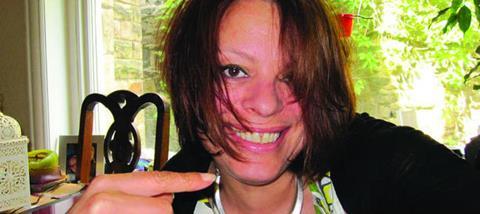
I was raised as Catholic. I wasn’t allowed to ‘consider’ Christianity; it was imposed upon me as something that I had to believe in, which I did by default up until my mid teens. I never questioned it at all up until the age of 15 or so, and my rebellion was no doubt fuelled by the discovery of boys. I was unusual, being a Catholic at my school, which made me feel somewhat embarrassed.
I particularly loathed being raised as a Catholic as I was dragged along to confession, a terrifying experience, on a regular basis. I had to lie about things to confess to, which is a sin in itself. I was sent to Sunday school and attended church frequently. I was brought up believing in the omnipotent and omnipresent God; I feared him. It is something so deeply ingrained that while I have eschewed my erstwhile faith intellectually, I still genuflect by reflex when entering a church; it is positively Pavlovian!
I’ve never considered Christianity as an adult although I do appreciate that faith can be a huge comfort to people at times of despair and trauma; I almost envy them.
I find it incredibly hard to reconcile why believing in something of which we have no proof ? having belief/faith in its existence ? is a pre-requisite to a supposed afterlife, when plenty of truly ‘evil’ people who have been religious and/or converted and supposedly repented (Myra Hindley springs to mind) are rewarded in heaven. It seems totally ridiculous and unfair to me, whereas someone who is a non-believer and leads an exemplary life does not qualify.
I believe that Jesus or someone like him probably existed, and was a great social reformer. If only all Christians espoused Jesus’ actual teachings in their purest form, then the world would be a much more tolerant and forgiving place. I also have difficulty in understanding why all true Christians are not socialists ? surely Jesus was in essence?
I find recent developments (or rather the lack thereof) in Christianity, such as the CofE’ refusal to ordain female bishops and allow gay marriage, extremely disappointing to say the least. I am a feminist and pro-equality, which I find antithetical to Abrahamic religions. It seems paradoxical (and outdated) to have a female head of the Church yet a ‘stained glass ceiling’
I know quite a few Christians and we never discuss religion as they know my views and vice versa; so we have tacit agreements to respect one another’s views. I know a couple of what might be described as ‘evangelical’ Christians, although they never broach the subject with me.
My adult churchgoing has been confined to visiting cathedrals as a tourist abroad, and weddings and funerals. Regarding the latter, I disengage from the religious element of ceremonies.
I have only ever prayed as a child, and usually out of fear. I also used to religiously ? pardon the pun ? sing ‘Happy Birthday’ to Jesus on Christmas Day.
My children have been brought up without faith; however, I have tried very hard not to bring them up as atheists. I believe that religion is very much a personal matter and should they wish to adopt one when they’re older, that is their decision and theirs alone.
I do believe that RE should be taught in schools, unlike many atheists, as I think religion has shaped our history and culture (by the latter I mean art, literature and architecture). I also feel quite strongly that alternatives to religion should be taught alongside it, such as philosophy and evolutionary theory within the same context, not as separate subjects. When I was at school, we were only taught about Christianity. At least today, RE has a multi-faith approach. I do, however, not approve of faith schools, which to me are highly divisive and promote sectarianism.
I believe that there is no destiny, no afterlife, and that life is a series of random events and pretty much a lottery. There is no natural justice, karma, divine retribution, or however one wishes to frame it. I totally understand how and why religious beliefs arose in the absence of any scientific knowledge, and I am amazed that many of these theories still prevail in this day and age.
I have formed these views on the basis on my life experiences and observations and have seen nothing to suggest otherwise. I sometimes ponder over issues such as why more visitors to Lourdes aren’t healed. Or what happens when one is a widow/er remarries, dies and their new spouse dies? If there is an afterlife, do they have a celestial reunion à trois? Such conundrums are some of the many aspects of religions that I find hard to grasp.
Alison Boydell is a feminist and socialist who campaigns to end violence against women. She was talking to Sarah Lothian.


























